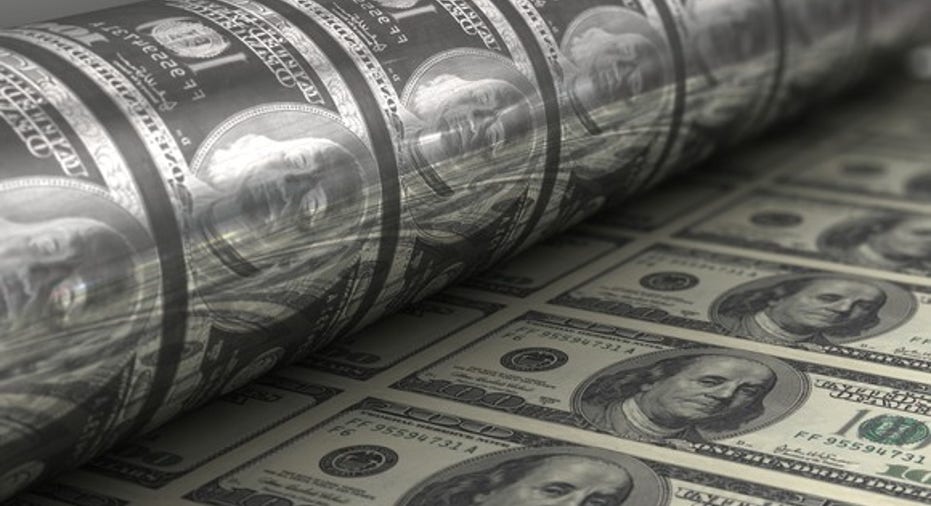Dollar Index Surges to 14-Year High

LONDON – The dollar soared to its highest since April 2003 against a basket of currencies on Wednesday, reaching its strongest in a year against the euro as major banks and investors debated the possibility of another move toward euro-dollar parity.
After a week-long rally driven by the post-election surge in U.S. bond yields, some of the major banks have been sounding more cautious on the dollar's immediate prospects.
But fueled by expectations of an inflationary push from the administration of President-elect Donald Trump that would spur more rises in Federal Reserve interest rates, it advanced past $1.07 per euro for the first time since the start of December 2015. =ebs>
It also rose half a percent against the yen to its highest since June 1, pushing the dollar index up another 0.3 percent to 100.53. It has gained almost 3 percent since Trump's election victory just over a week ago.
Notably, however, St Louis Fed chief James Bullard's comment that it would be a surprise now if the U.S. central bank did not raise rates next month had little impact on the market.
"Broad gains are clearly meeting more resistance, as a December Fed hike is now 95 percent discounted and much uncertainty still surrounds the broader direction of U.S. economic policy under President-elect Trump," said Adam Cole, head of G10 FX strategy with RBC in London.
Trump's victory has raised concern about further, potentially destabilizing victories for populists in elections across Europe in the coming year, and a number of banks and traders have predicted the euro will head back toward the lows around 1.05 at which the last dollar rally stalled last year.
That also raises the prospect of another attack on parity with the single currency.
"Can the dollar go to parity with the euro? Well, we are only 7-8 percent away so probably yes," said Adnan Akant, head of foreign exchange at Fischer Francis Trees and Watts, a New York based institutional currency manager owned by BNP Paribas.
"Under Trump, we are looking at fiscal policy divergence (with Europe and Japan) which should be very positive for the dollar. Protectionism is a risk, but if that is focused on emerging markets, it may perversely also be a dollar positive."
Against the yen, the dollar gained 0.2 percent to 109.69 yen , after reaching a five-month peak of 109.34 on Tuesday. It gained a third of a percent against sterling and the Canadian dollar , and was almost 1 percent higher against the Australian dollar , weakened by a dip in the price of oil and other major commodities. =d4> =d4> => =>
"Buy dollars is still probably the main trade," said a senior trader with another international bank in London.
"The initial knee-jerk trade has run its course now. We might see some to-and-froing, but in general the dollar should stay strong. I don't know about parity with the euro, but we may definitely take another crack at $1.05."
(Additional reporting by Jemima Kelly; Editing by Larry King)



















